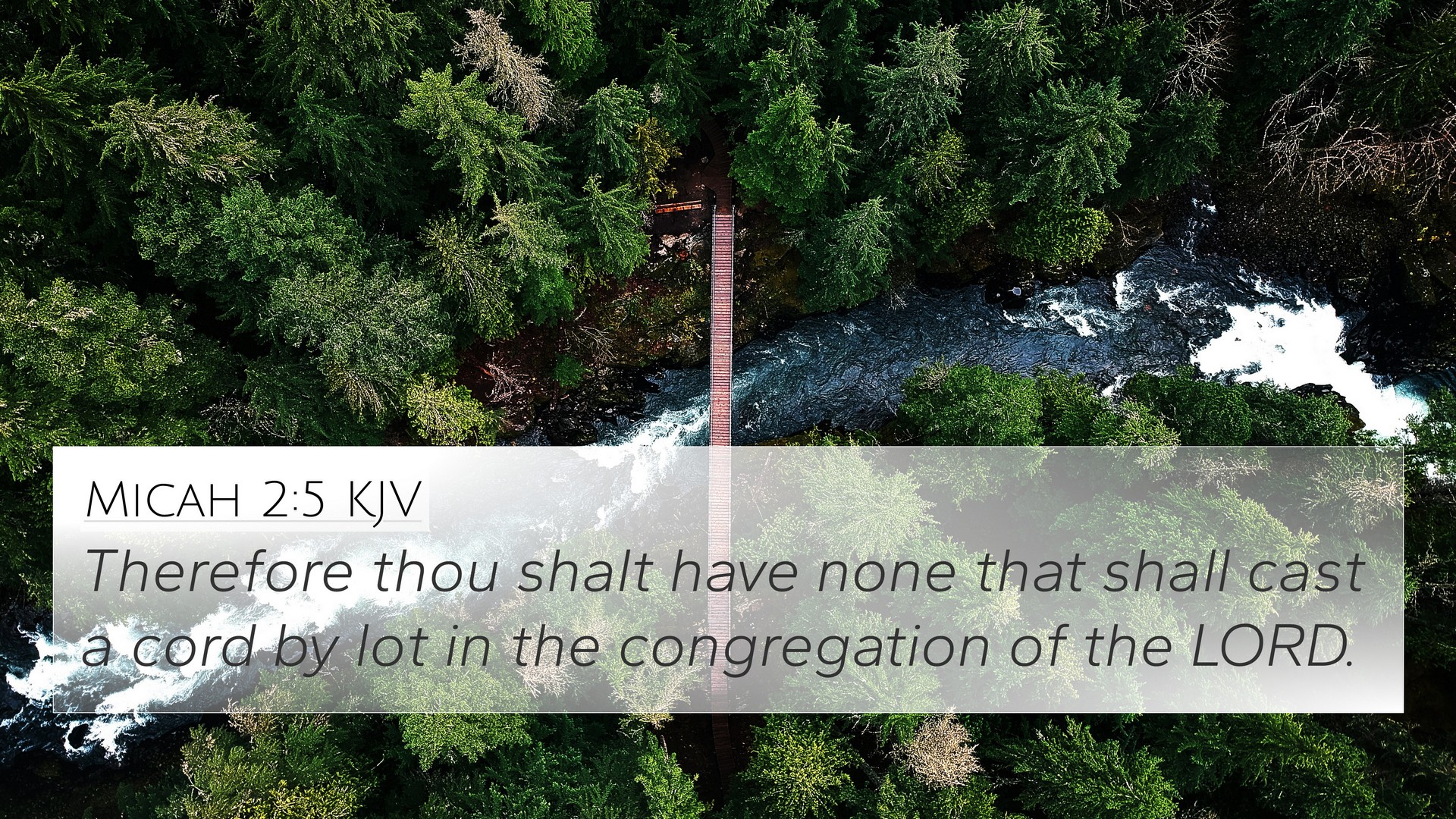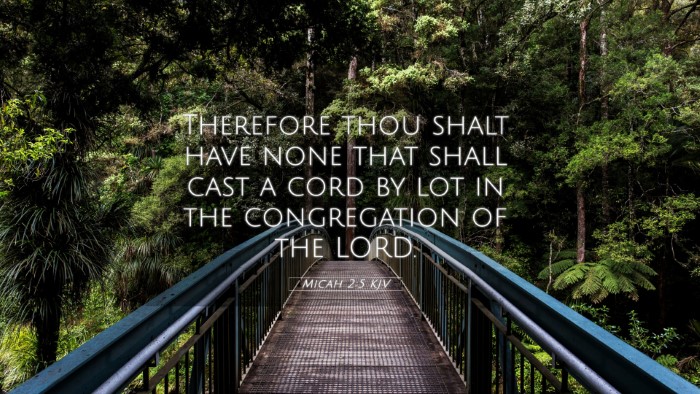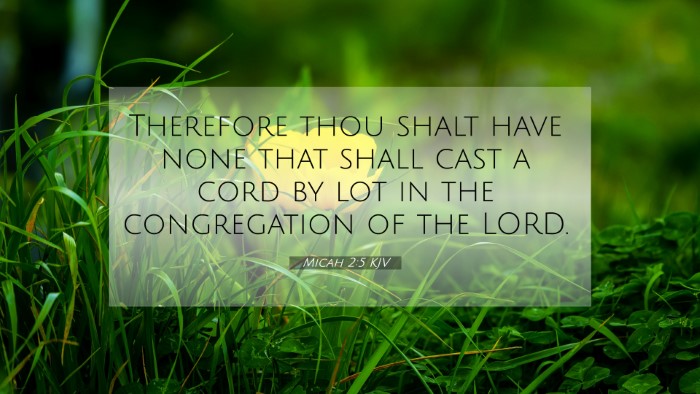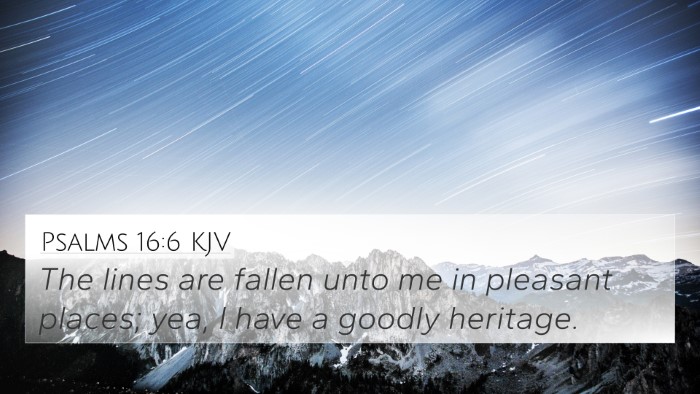Old Testament
Genesis Exodus Leviticus Numbers Deuteronomy Joshua Judges Ruth 1 Samuel 2 Samuel 1 Kings 2 Kings 1 Chronicles 2 Chronicles Ezra Nehemiah Esther Job Psalms Proverbs Ecclesiastes Song of Solomon Isaiah Jeremiah Lamentations Ezekiel Daniel Hosea Joel Amos Obadiah Jonah Micah Nahum Habakkuk Zephaniah Haggai Zechariah MalachiMicah 2:5 Similar Verses
Micah 2:5 Cross References
Therefore thou shalt have none that shall cast a cord by lot in the congregation of the LORD.
Uncover the Rich Themes and Topics of This Bible Verse
Listed below are the Bible themes associated with Micah 2:5. We invite you to explore each theme to gain deeper insights into the Scriptures.
Micah 2:5 Cross Reference Verses
This section features a detailed cross-reference designed to enrich your understanding of the Scriptures. Below, you will find carefully selected verses that echo the themes and teachings related to Micah 2:5 KJV. Click on any image to explore detailed analyses of related Bible verses and uncover deeper theological insights.
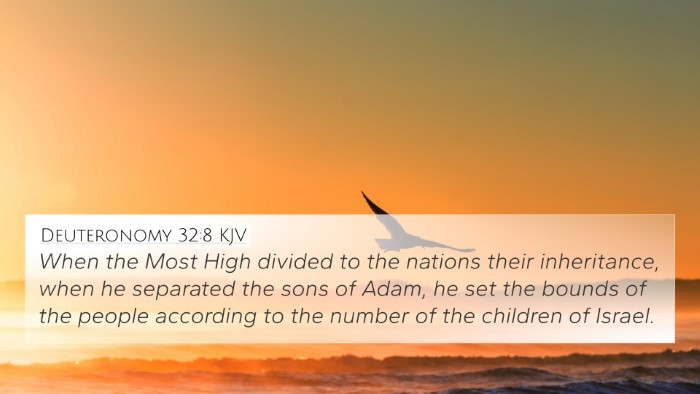
Deuteronomy 32:8 (KJV) »
When the Most High divided to the nations their inheritance, when he separated the sons of Adam, he set the bounds of the people according to the number of the children of Israel.
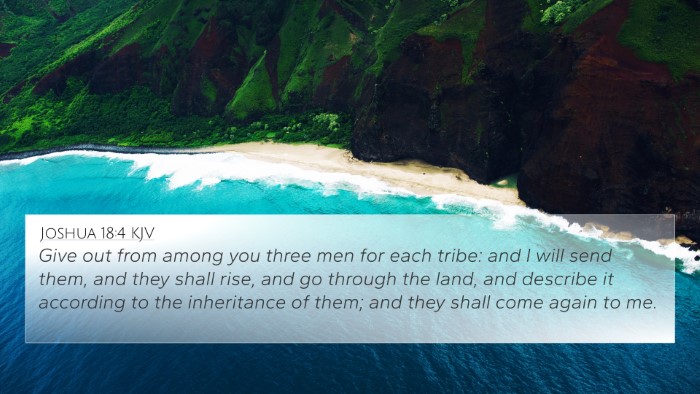
Joshua 18:4 (KJV) »
Give out from among you three men for each tribe: and I will send them, and they shall rise, and go through the land, and describe it according to the inheritance of them; and they shall come again to me.
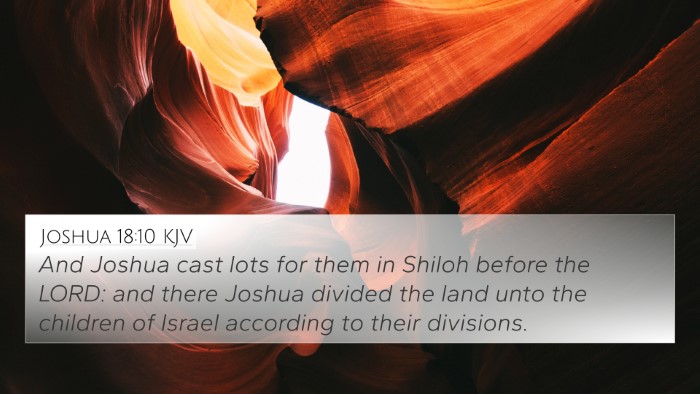
Joshua 18:10 (KJV) »
And Joshua cast lots for them in Shiloh before the LORD: and there Joshua divided the land unto the children of Israel according to their divisions.
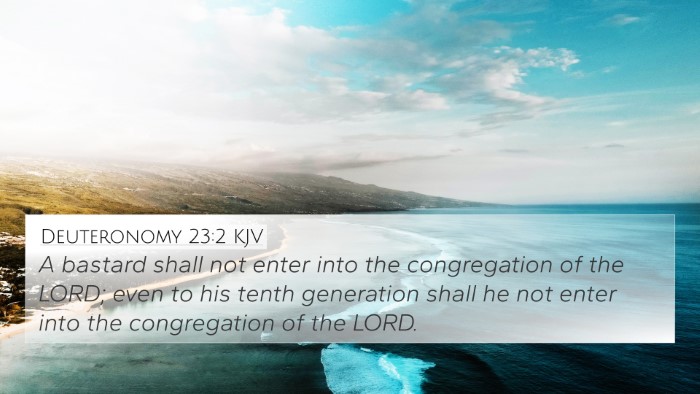
Deuteronomy 23:2 (KJV) »
A bastard shall not enter into the congregation of the LORD; even to his tenth generation shall he not enter into the congregation of the LORD.
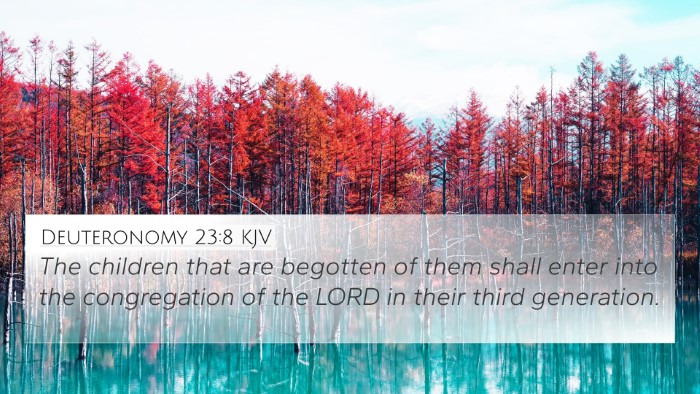
Deuteronomy 23:8 (KJV) »
The children that are begotten of them shall enter into the congregation of the LORD in their third generation.
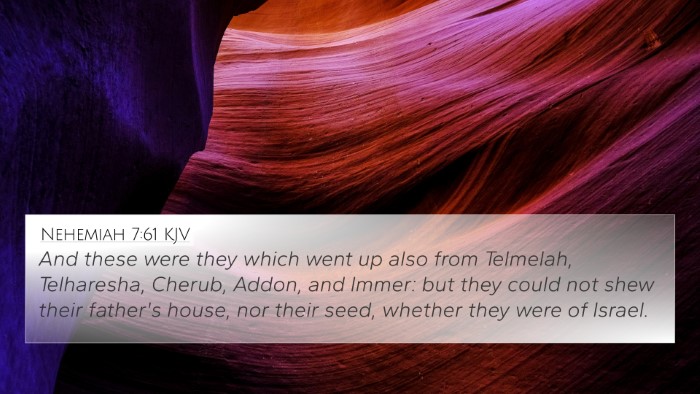
Nehemiah 7:61 (KJV) »
And these were they which went up also from Telmelah, Telharesha, Cherub, Addon, and Immer: but they could not shew their father's house, nor their seed, whether they were of Israel.
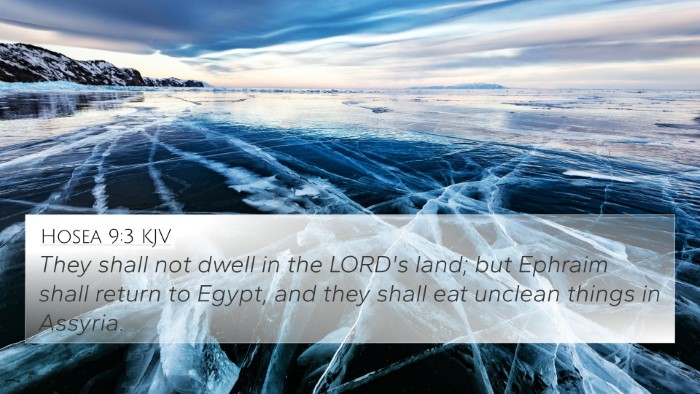
Hosea 9:3 (KJV) »
They shall not dwell in the LORD's land; but Ephraim shall return to Egypt, and they shall eat unclean things in Assyria.
Micah 2:5 Verse Analysis and Similar Verses
Understanding Micah 2:5
Micah 2:5 states: "Their inheritance shall be unto them as a stumblingblock." This verse, nestled within the prophetic warnings to Israel, encapsulates deep truths about the consequences of injustice and sin within God’s people.
Summary of Meaning
This verse emphasizes the dire ramifications of the actions of those in power, particularly how deceitful practices lead to spiritual and physical disinheritance from God’s promises. Micah prophesies that instead of receiving blessings, the unjust will experience the burden of their own wrongdoing.
Combined Insights from Commentaries
- Matthew Henry:
Henry explains that the verse acts as a warning to the oppressors; it highlights the injustice that arises from taking land and rights from the vulnerable. He notes that God’s judgment is severe upon those who refuse to act justly.
- Albert Barnes:
Barnes focuses on the idea that heritage should be a source of joy and stability. In this passage, the profane act of seizing property diverts these blessings, ultimately leading to spiritual disarray for the nation.
- Adam Clarke:
Clarke mentions that the “stumblingblock” serves as a metaphorical representation of the ultimate downfall that results from the injustices committed against the innocent. Those who seek to elevate themselves at the cost of others will lead their own way to destruction.
Bible Verse Cross-References
To fully grasp the implications of Micah 2:5, it can be helpful to explore the following cross-references:
- Isaiah 5:8-9: Warns against those who unjustly acquire land and property, leading to God’s judgment.
- Jeremiah 22:17: Speaks against the wickedness of rulers who neglect justice and promote oppression.
- Ezekiel 18:30: Calls for a turning away from sins and practicing justice to avoid the consequences of wrongdoing.
- Proverbs 22:22-23: Advises against robbing the poor and oppressing those in need, as God will defend their cause.
- Matthew 21:12-13: Jesus cleanses the temple, condemning the turning of a house of prayer into a den of thieves, mirroring Micah's cries against injustice.
- James 2:6-7: Addresses how the rich often oppress the poor, highlighting the cyclical nature of injustice.
- Micah 6:8: God’s requirements are justice, mercy, and humility, suggesting that failure to adhere to this leads to the very pitfalls described in Micah 2:5.
Thematic Bible Verse Connections
Micah 2:5 aligns with numerous themes present throughout scripture, emphasizing justice, righteousness, and divine judgment. Here are some noteworthy thematic connections:
- Justice and Righteousness: The theme of justice is prevalent, reminding believers to uphold fairness in their dealings (Isaiah 1:17).
- Divine Judgment: Connecting to passages that discuss God’s judgment upon nations that stray from His commandments (Revelation 20:11-15).
- Hope and Restoration: Despite the dire warnings, the theme of hope in restoration and salvation can be seen (Jeremiah 29:11).
Cross-Referencing Biblical Texts
Many scriptures echo and support the teachings within Micah, enhancing understanding and revealing the interconnectedness of God’s Word. Tools for effective cross-referencing can greatly aid in deeper Bible study.
- Tools for Bible Cross-Referencing: Utilizing a Bible concordance to find related verses enhances thematic understanding.
- Bible Reference Resources: A cross-reference Bible study will illuminate links between different scriptures, such as parallels between Old and New Testament writings.
- Inter-Biblical Dialogue: Exploring the extensive dialogues between Old Testament prophets and New Testament teachings fosters a comprehensive biblical perspective.
Conclusion
Micah 2:5 serves as a profound reminder of the dangers of injustice and the importance of adhering to God's covenant of righteousness. By referencing other scriptures and utilizing cross-referencing techniques, believers can foster a deeper understanding of the biblical narrative, allowing themes of justice, mercy, and divine judgment to resonate throughout their study.
